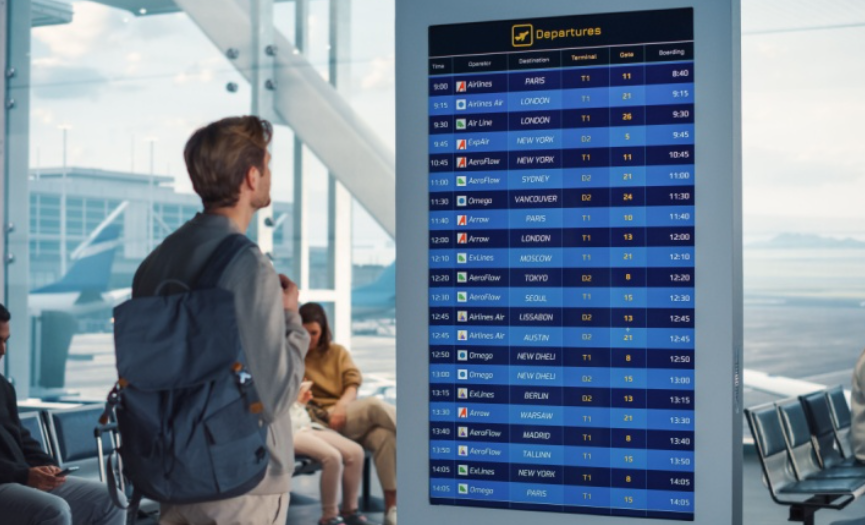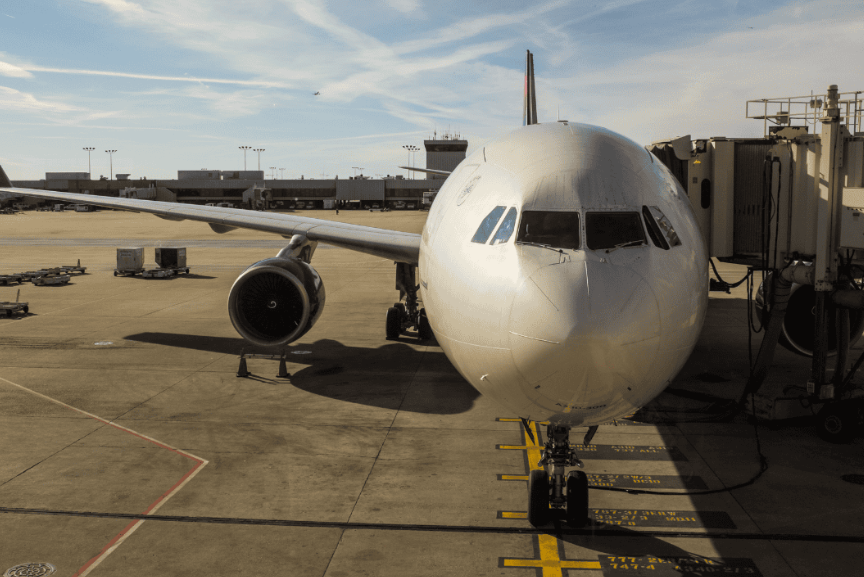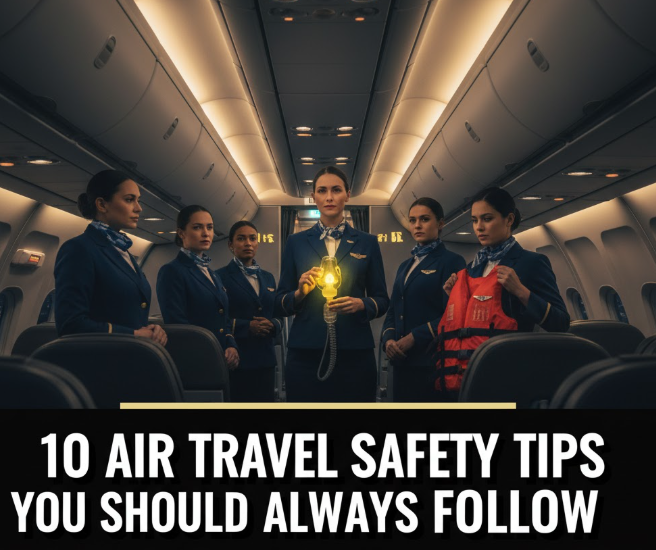Few things are as frustrating for air travelers as flight delays. You’ve been packed, arrived at the airport on time, and are eager to get where you are going — when you see those fateful words displayed next to your flight number: “DELAYED.” Whether it’s business travel, a flight home for the holidays or the trip of a lifetime, a flight delay can disrupt your plans.
But the good news is that with the right perspective, preparation and know-how, you can make a stressful delay something far more manageable. This guide will prepare you for all of the ins and outs of handling flight delays like a frequent traveler, covering everything from why they happen to how to protect yourself — and even get compensated.
What Actually Causes Flight Delays?
Before you have any hope of mastering delays, it’s helpful to understand why they are happening in the first place. The schedule that air travelers rely on is not randomly disrupted; more often than not, delays fall into a few broad buckets.
Weather Problems
Flight delays are caused – above all – by Mother Nature. Thunderstorms, fog, snow and ice can ground planes — or slow down operations. There’s no point in even trying to second-guess Mother Nature, and safety is the first priority. Other times you may have blue skies in your city of departure, only for storms to be brewing at your destination or en route and causing delays.
Technical Issues
Airplanes are intricate machines with millions of parts. When something is broken or not functioning properly, the airline has to address it before takeoff. Obviously, this is irritating, but you want your aircraft in tip-top shape before it takes off.
Air Traffic Control Delays
Airports and airspace have just so much room. When there are too many planes trying to take off or land simultaneously, air traffic controllers have to space them out for safety. Think of it as rush-hour traffic, in the sky.
Late Arriving Aircraft
Your flight could be delayed because the plane that will service it has yet to arrive from another city. This sets off a domino effect — one delay leads to another.
Staffing Shortages
At times, airlines may not have enough pilots, flight attendants or ground crew members. This has been happening more often in recent years and can contribute to substantial delays.
What to Do as Soon as You Hear About a Delay
Time is of the essence when you learn about a delay initially. The choices you make in your first few minutes could make all the difference.
Don’t Panic—Remain Composed and Rationally Reasoned
Your first impulse may be frustration or anger, and that’s completely O.K. But take a deep breath. It won’t make the aircraft depart any faster, and you’ll want a clear mind to help sort through the aftermath.
Stand in Line AND Be on the Phone
Here’s a tip that most people don’t know: when you first hear about a delay, get in the line for the airline’s customer service desk. But also, once you are in line, at the same time, call the airline’s customer service phone. Either the phone representative or desk agent can assist you, whoever responds quickest. This is doubling your chances of rebooking quickly.
Check Your Airline’s App
The vast majority of major carriers have slick mobile apps where you can rebook flights yourself. At times, the app can rebook you on a new flight more quickly than it takes to get an agent. Now before you fly, download the app of your airline and make sure you are logged in.
Consider Your Options Regarding Other Flights
Don’t be so quick to agree to the first flight that the airline offers you to rebook for. Instead, look for alternative flights, such as:
- Flights from the same airline’s partner companies
- Flights with connections instead of the usual direct ones
- Flights to one of the nearby airports
- Flights leaving at a different time
Your Rights as a Passenger
Many travelers aren’t aware of the rights they have in situations where flight delays happen. Your rights depend on the rules set by the country of the airline that’s been delaying you and the reasons behind the flight delay.
In the United States
U.S. Federal law doesn’t have requirements for airline companies to provide compensations for flight delays. However, some rules and regulations obligate the airlines to:
- Provide you with food vouchers in case of a delay longer than a certain amount, it’s usually longer than 3 hours
- Provide you with a hotel voucher if the delay is so big that you have to wait for the flight overnight
- Rebook you for the next available flight for free
Every airline has its own service contracts that will almost always have this information. For more travel tips and resources, visit Call to Flights.
European Union Practices
This association also has a set of rules to protect the passengers. The rule to look into is called EC 261. If an airline delays your flight over 3 hours and the reason for the delay is the company’s fault, you may claim:
- A €250-€600 check depending on the flight distance
- Several meals and refreshments
- A free room in a hotel and a car to get to the hotel and back
- Two free calls or emails
Other Cases
Some other countries, such as Canada, Brazil, and Turkey, have developed similar passenger protection systems, so always check the rules for the specific airline you’re flying with.
EU Distance Regulation Compensation Claim Delay
| Distance | Compensation | Delay |
|---|---|---|
| Under 1,500 km | €250 | 3+ hours |
| 1,500-3,500 km | €400 | 3+ hours |
| Over 3,500 km | €600 | 4+ hours |

Essential Items In Your Carry-On Bag
Snacks and Empty Water Bottle
Airport food can be costly and unavailable at odd hours of the night. Bring along protein bars, nuts or other snacks that don’t need to be refrigerated. Carry an empty water bottle that you can fill after security.
Phone Charger and Portable Battery
Your phone is what you live for during a delay. You’ll need it to rebook flights, check for updates and keep in touch with people. A portable battery pack can prevent you from searching for airport outlets.
Toothbrush/Paste and Extra Outfit
If your delay ends up stretching into an overnight stay, you’ll be glad to have a toothbrush, face wipes, deodorant and a clean shirt. Not to mention, little items like these can help you feel refreshed and ready for a new day.
Entertainment
Download movies, TV shows, books or podcasts in the days leading up to your flight. Airport Wi-Fi is either slow or costs an arm and a leg, so you need offline entertainment.
Important Documents and Medications
You will want to keep copies of your travel insurance, booking confirmations, passport and required medicines in your carry-on. Always avoid packing these things in your checked bag.
Money Matters: Getting Compensated
When your flight is delayed, you may have more coming to you than you realize. Here’s how to get the most compensation possible.
Ask for Meal Vouchers
Even when a delay isn’t the airline’s fault, many airlines offer meal vouchers for long delays. And don’t just hope they will offer — you have to ask. Be polite but persistent.
Document Everything
Take picture of the board that displays the delay, save all your receipts for food and hotels, and save all your boarding passes. You will need proof if you ever have to file a claim later.
File Compensation Claims
For eligible delays (especially in the EU), make a claim for compensation even if the airline rejects you at first. Many free services are willing to file claims directly for you, and take only a percentage if they win. Negotiate the compensation you are entitled to through a company like AirHelp or ClaimCompass.
Know Your Credit Card Benefits
Trip delay insurance is included on a lot of travel credit cards. If your flight is delayed by more than 6 hours, your card could cover the cost of meals and hotels, up to a reasonable amount. Before you head out, review your card benefits.
Request Upgrade Vouchers
If you’re a regular flier, or if your travel plans have been severely compromised, politely ask whether the airline will offer upgrade vouchers or frequent flier miles in compensation. The worst they can say is no.
Use it to Your Advantage
Delays don’t have to be the absolute worst. Here’s what you can do to turn a tough situation into the best one possible.
Explore the Airport
The majority of larger airports have interesting shops, museums, art installations or observation decks. Go for a walk in neighborhoods you otherwise wouldn’t go to.
Get Some Work Done
If you were hoping to work on your flight, work at the airport instead. Quiet workspaces or business lounges are available in many airports now.
Catch Up on Rest
Find a quiet place and sleep, if there’s time for a very short nap. Some airports even offer sleeping pods or rest zones for just this sort of thing.
Meet Other Travelers
Passengers on your delayed flight are similarly frustrated. Y’know, sometimes you get to chatting and pass the time and make a friend out of it.
Practice Self-Care
Put the extra time to good use. Meditate, stretch, write in your journal or listen to a motivational podcast. Use this as a way to overcome and grow as an individual.
When to Consider Alternative Options
A few times it may pay to bail altogether on your original flight and figure out a new way to get to where you’re going.
Driving Might Be Faster
If you can reach your destination in 4 to 5 hours by car or even less, then renting a vehicle could get you there faster with the added bonus of spending time on the road instead of streaming away for endless hours inside the airport terminal. This is especially handy for short regional flights.
Taking a Train or Bus
Train travel can be faster and more reliable than flying in some regions, especially in Europe and parts of Asia. See if there’s a rail option to your destination.
Flying to a Different Airport
If you’re delayed in trying to get to a big city, try flying into an alternative nearby airport. There are also plenty of times where you can book a flight and then drive or take ground transportation the rest of an itinerary.
Waiting for Tomorrow
It’s the middle of the night? If an airline can have you on a morning flight, it can be less stressful (not to mention better-rested) to start off tomorrow with a hotel voucher than arrive half-asleep at 3 in the morning.
Travel Insurance: Is It Worth It?
In many cases, travel insurance can offer some peace of mind in the face of delays, but it’s not always a must-have for everyone.
What Travel Insurance Covers
Good travel insurance typically covers:
- Trip cancellation and interruption
- Delays over 6-12 hours
- Lost or delayed baggage
- Medical emergencies while traveling
- Emergency evacuation
When You Should Buy It
Consider travel insurance for:
- Expensive international trips
- Hurricane season or winter storm travel
- Prebooked trips you paid for months before
- Travel if you or someone in your family is sick
- Cruises, or tours where the cancellation penalty is rigid
When You Might Skip It
You may not need standalone travel insurance if:
- You’re going on a brief domestic trip
- You used a credit card with travel protection to book
- You don’t mind being on the hook if there’s a screwup
- You can always do something else

How to Handle Flight Delays Like a Pro
Stop Delay Disasters Before They Start
The most effective way of mitigating delays is to prevent them from ever occurring.
Book the First Wave of Flights
One reason that morning flights are canceled at the lowest rate is that they have not yet been impacted by previous flight delays later in the day.
Choose Direct Flights When Possible
Every connection is another chance for delays and missed flights. Your chances of things going wrong are reduced with a point-to-point flight.
Allow Long Layovers
If you have to connect, then give yourself 2-3 hours before your next flight. And this buffer can come in handy if your first flight is delayed.
Track Your Flight in Advance
Begin checking your flight status 24 hours in advance of departure. Many times, airlines will have knowledge of potential delays before they are officially announced.
Join Airline Loyalty Programs
Frequent flier status can get you rebooked sooner, access to better customer service lines and compensation that regular passengers may not receive.
Fly in Good Weather Days
If at all possible, don’t travel during peak storm seasons or when weather reports are suggesting a major weather event is on the horizon.
How to Stay Cool When Everyone Else Is Losing It
Your attitude plays a big role in how you’ll handle being delayed.
Remember It’s Not Personal
That gate agent didn’t purposely delay your flight. The customer service rep is facing hundreds of cranky passengers. Being rude won’t help — being kind might get you better service.
Keep Perspective
A delay is a problem, but it isn’t a disaster. You’re O.K., you will make your way to where you need to go, and this is going to be one tiny little blip in how your life unfolds.
Use Humor
Other times you just have to laugh at the insanity of travel. Swap stories with other passengers or laugh about it.
Focus on What You Can Control
You cannot control when the plane will depart, but you can control how you spend your time waiting and what you put in your body and how much of a hissy fit you throw about it.
Practice Gratitude
As irritating as a delay can be, you have the means to fly somewhere. Many people are never given that chance. A little perspective can change your mind.
FAQs About Flight Delays
How long does an airline have to delay a flight before it must compensate you?
In the US, there are no federal law provisions mandating compensation for delays, however some airlines will offer meal tickets or vouchers when facing a 3+ hour delay. If you’re stranded in the European Union, you can have a claim if it’s the airline’s fault and was delayed for 3+ hours. Country and airline requirements differ.
If my flight is delayed, can I get a refund?
If your flight is canceled, or delayed by more than 3-4 hours (depending on the particular airline’s policy) and you don’t want to be rebooked onto a new flight, you’re generally entitled to a full refund. But for delays of shorter duration, airlines usually rebook you without refunding.
What if a delay causes me to miss my connection?
If you are on the same ticket for both flights, the airline is obligated to rebook you at no cost onto the next available flight. If you booked the tickets separately, it’s your job to find a new connection, and this is why booking separate tickets can be risky.
Should I accept a voucher, or should I ask for cash?
If you are in the E.U. or another region with robust passenger rights, always request cash compensation first. Vouchers frequently have limits and deadlines. In the U.S., vouchers are generally your only alternative, unless you’re involuntarily bumped from an oversold flight.
How do I determine if weather is truly the culprit or the airline is telling a falsehood?
Look for weather predictions in your departure city, destination and transit cities. You might also check other airlines to see whether they are having similar delays on that route. If your airline is the only one having issues in clear weather, other factors may be at work.
Am I allowed to leave the airport during a long layover?
Yes, but be very careful. Just leave lots of time to get back through security, and keep checking your flight status. Especially if your delay becomes an early departure, you may end up missing the flight. Additionally, some airports make you go through security once more — a process that can add time to your travels.
Are all delays covered by travel insurance?
Most travel insurance covers delays longer than 6-12 hours, and some policies only cover specific causes of delay (like weather or mechanical). Read your policy carefully so you understand what is covered before purchasing it.
Last Thoughts: Being a Delay Pro
Flight delays are unfortunately a part and parcel of today’s air travel. Recent statistics suggest that one in five flights suffers some type of delay. So if you fly often, you will almost certainly be in this situation a few times.
There’s no winner here, but there can be a big difference between something uncomfortable or inconvenient and something being straight-up miserable. Pack wisely, be aware of your rights, remain flexible and maintain a positive attitude. Be mindful that airline employees are doing the best they can under difficult circumstances and kindness goes a long way.
The next time “DELAYED” flashes up on your departure board, you’ll know what to do. You’ll have snacks in your bag, phone charger fully charged, airline number on speed dial and a peace of mind. Maybe you’ll even be able to assist other frazzled passengers with your newly developed know-how.
Everyone who has traveled extensively probably has horror stories about delays, but also about impromptu airport adventures, interesting conversations with seatmates and the satisfaction of taking an unexpected turn of events in stride. With the tactics shared in this guide, you should be prepared to handle whatever comes your way and get to where you’re going like any travel pro.
Enjoy your travels, and may all your flights be on time — but if they’re not, you’ve got this!






